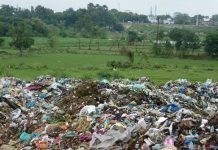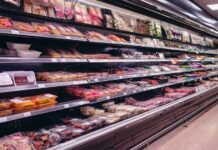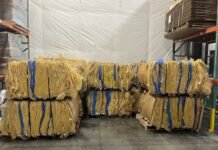
Siegwerk, a leading providers of printing inks and coatings for packaging applications and labels, Greiner Packaging and Krones have joined forces in an initiative that highlights the capabilities of state-of-the-art recycling facilities in the conversion of direct-printed PP and PS cups.
Despite being considered non-recyclable by some design for recycling guidelines, the three companies were able to effectively deink and convert the rigid containers into high-quality white recyclates, without the need for altering the ink formulation or print design. This was achieved by utilizing hot caustic washing, a standard process for PET bottle recycling that is increasingly adopted also by recyclers who are working with polyolefin (PO) and PS rigid streams.
The findings underscore the need for guidelines to evolve with technological advancements in recycling, ensuring they reflect the most efficient and sustainable routes to a circular packaging economy. The project partners advocate for a reevaluation of the role of printing inks and coatings in recycling, calling for a broader assessment of packaging deinkability under standard hot caustic conditions and adoption of the corresponding test standard published under DIN SPEC 91496.[1] This viewpoint is well aligned with the position paper recently issued by EuPIA.[2]
The project
The collaboration began with laboratory tests on both PP and PS cups, at Siegwerk’s facilities, adhering to DIN SPEC 91496.[5] The tests resulted in complete ink removal, with ΔE values ranging from 0.5-1.5, well below the acceptable limit of 3. These encouraging results led to the next phase of validating these findings under industrial conditions. For this, Krones, recognized as one of the market leaders in globally supplying hot washing equipment to PO recycling companies, provided their pilot plant, a representative version of the set-ups used in the industry, for conducting large-scale washing tests.
In this stage, 500 kg of mixed-colour PP cups were processed. To the delight of the consortium, the continuous hot washing process was highly effective in removing inks without any deviation from standard washing conditions, while using standard offset printing inks.
Additionally, water treatment tests, also following DIN SPEC 91496 procedure, showed that inks could be readily flocculated out of the lye, enabling the washing solution to be used in a closed cycle.
“Caustic hot washing is becoming essential in plastic recycling. Efficient removal of filling good residues, adhesives and inks requires more intense washing systems, particularly when targeting consumer packaging,” explained Michael Auburger, product specialist recycling solutions at Krones.
“Design for Recycling Guidelines are important tools to enable a Circular Economy. However, it is even more important to continuously review them and develop them further if necessary”, continued Anita Gruber, Greiner’s global project manager circular economy. “As converters, we aim to design our packaging in the best possible way. We also believe that the entire value chain must work together to drive positive developments.”
“Indeed, achieving packaging circularity in Europe isn’t just about changing upstream design,” added Andrey Charkovskiy, senior business partner recycling and polymers at Siegwerk. “The whole value chain has to work together and Design for Recycling Guidelines must be continually reassessed to recognize the latest in recycling technology. Cross-value chain industry initiatives like creation of the standardized deinking test protocol DIN SPEC 91496, are essential and need to be acknowledged on the European level,” he concluded.
DIN SPEC 91496, Recycling of printed polymer packaging – Evaluation of deinking using a test procedure: https://www.beuth.de/en/technical-rule/din-spec-91496/375461367
EuPIA position paper on deinking: https://www.eupia.org/keytopics/circular-economy/










